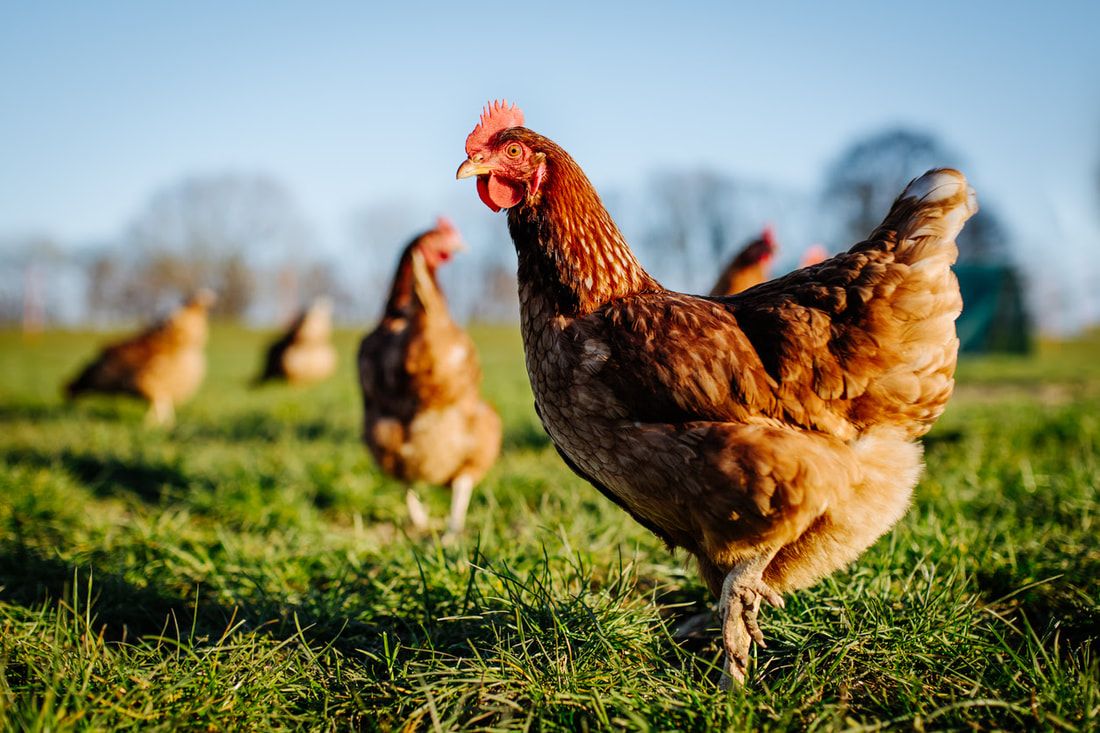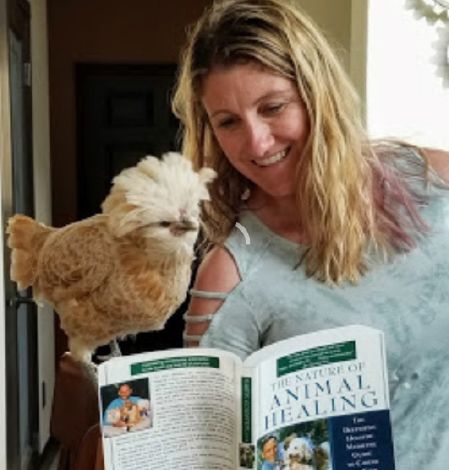Is your chicken under the weather?
Look for these signs


Chickens are susceptible to illness just like any other critter. Being prey animals, chickens like to hide their ailment so as not to attract predators; this makes it difficult to quickly diagnose and treat them before it’s too late. Here are some signs of a sick chicken and how to treat them effectively.
Signs that Henrietta isn’t feeling well
To recognize a sick chicken, you first need to know what a healthy one looks like. If your hen is bright-eyed and bushy-tailed, she should be active and alert and hanging out with her flockmates, be interested in food, have clear eyes and nostrils, her comb and wattles should be brightly colored, vent should be clear, her legs should look smooth, feathers should be smooth and shiny, and she should be of a good weight.
If other chickens are being overly aggressive or trying to run one of their flockmates off, that could be your first indication that you have a sick chicken. Sick chickens attract predators; so, if a member of the group notices one of their feathered family isn’t acting quite right, they will harass them and chase them away from the others. It may sound a bit cruel, but it’s done for the safety of the whole flock.
Therefore, if you see one of your chickens hiding from the rest or being harassed, it would be smart take a closer look.
A lethargic chicken is a sick chicken. Chickens do take naps and can be seen snoozing in the shade; but, if you notice one of the flock is moving slower than the rest or just seems to be unusually sleepy, it may be a sign that something more sinister is going on.
A chicken that shows little or no interest in food or her favorite treats should be caught and more thoroughly examined. If one of your chickens is simply hanging out in the corner instead of fighting over morsels of toast, something is not right.
Some signs are more obvious, like crusty eyes, a runny nose, scaly legs, messy bottom, pale wattles, wheezing, sneezing or gasping, ragged feathers or sudden weight loss. If you notice any of these issues, separate your chicken immediately to diagnose the issue.
Common ailments
The easiest signs of illness are ones you can see. Here are some common ailments, head to toe.
Comb discoloration: A pale comb is a sign of improper bloodflow and could be a sign of heat exhaustion, infection or worms. Purple combs indicate lack of oxygen caused by a stroke, or respiratory issue. A black comb could be caused by frostbite or an infection.
Goopy eyes: Bubbles in the eyes can be caused by bronchitis or an allergic reaction to dust.Too much ammonia build up in the coop can also be a culprit. If your hen sports a grey iris, she may have the deadly Mareks’ disease. Sticky discharge could indicate an eye infection, disease or something stuck in the eye.
Itching and rough feathers: If a chicken is literally scratching its’ feathers out, it may be a sign of lice or mites. Chickens like to keep their feathers fluffy and shiny; if you notice particularly ragged or dull feathers, a lice treatment could do the trick.
Crop problems: A rock hard crop could indicate a blockage. An overly mushy crop with a foul smell can be sour crop.
Sudden weight loss: A fat chicken is a happy chicken. Weight loss can be caused by a multitude of issues like disease, infections, crop problems preventing food from passing through, pain or stress.
Lameness: If you have a gimpy chicken, check for bumblefoot or a foreign object. If you see nothing in the foot, check for signs of bruising or lumps on the legs. Chickens can take tumbles just like any other animals and sprain or break their legs or toes.
Diarrhea or clogged vents: Runny or discolored feces can be an indicator of disease or bad feed. A chicken with consistent diarrhea can become dehydrated quickly. The opposite end of this are vents that are clogged with feces. This is rather common in chicks.
Wheezing and sneezing: Respiratory infections are common I chickens, especially in large groups that live in enclosed coops.
Prevention is key
A sick chicken can be stressful and pricey. Avoid this with some simple prevention techniques.
A well-ventilated and clean coop will prevent respiratory and eye problems. Be sure the footing is soft and clean to keep bumblefoot at bay.
Dust your chickens, coop and bathing area for lice and mites.
Purchase high-quality feed and ensure it doesn’t get moldy or sour. Crop problems and digestive issues can stem from rotten feed.
Ensure there is a constant supply of clean, fresh water. Water should be changed daily and the containers scrubbed. Dehydration is a big problem and stagnant water will breed nasty bugs and disease.
The most important thing to do is keep a close eye on your flock. If you notice any unusual behavior, separate that chicken to diagnose the issue, care for the afflicted and keep them warm and comfortable until a vet can be called.
About the author
Shelby Stone is a writer when she isn’t busy with her chickens, her horse Percy, Mango the parrot, and the many other animals in her family.
Tags:Chicken Chatter

Acreage Life is part of the Catalyst Communications Network publication family.
















